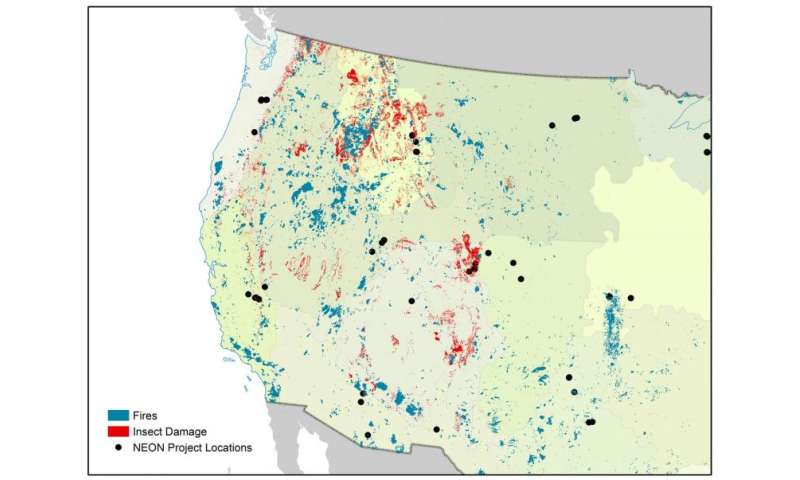UM scientist earns grant to study carbon across North America

University of Montana researcher Ashley Ballantyne recently was awarded a nearly $300,000 grant from the National Science Foundation to study ecosystem carbon production and consumption across North America.
Ballantyne, an assistant professor of bioclimatology, will investigate how disturbances such as fire and insect infestation might be changing how the Earth absorbs carbon. The award comes from NSF's Early Concept Grants for Exploratory Research and its National Ecological Observatory Network (NEON) programs.
Ballantyne previously has shown that terrestrial CO2 uptake appears to be increasing - but also is increasingly variable - due to disturbance. Some terrestrial landscapes might take up more carbon and some less, and overall North America may be shifting from being a net carbon sink to being a net carbon source.
Using models, Ballantyne and collaborators will simulate regional scale disturbance during the past 50 years to see how atmospheric CO2 responds. They'll also compare real-world measurements of water and carbon to land-vegetation model simulations to evaluate how well NEON sites detect disturbances of varying severity.
"Disturbance is clearly affecting the carbon balance of ecosystems, especially across the western U.S.," Ballantyne said. "By the end of the two-year research project, we hope to use model simulations to help optimize observation networks for detecting impact of disturbance on ecosystem carbon balance."
NEON is a continental-scale observation network that examines ecological change over time. In August NEON announced $4.8 million in research awards to enable innovative biological research and foster collaboration for projects using NEON data.
Ballantyne's collaborators include Ben Poulter at Montana State University and Bill Anderegg at Princeton University, as well as UM graduate student Annie Cooper.
Provided by University of Montana